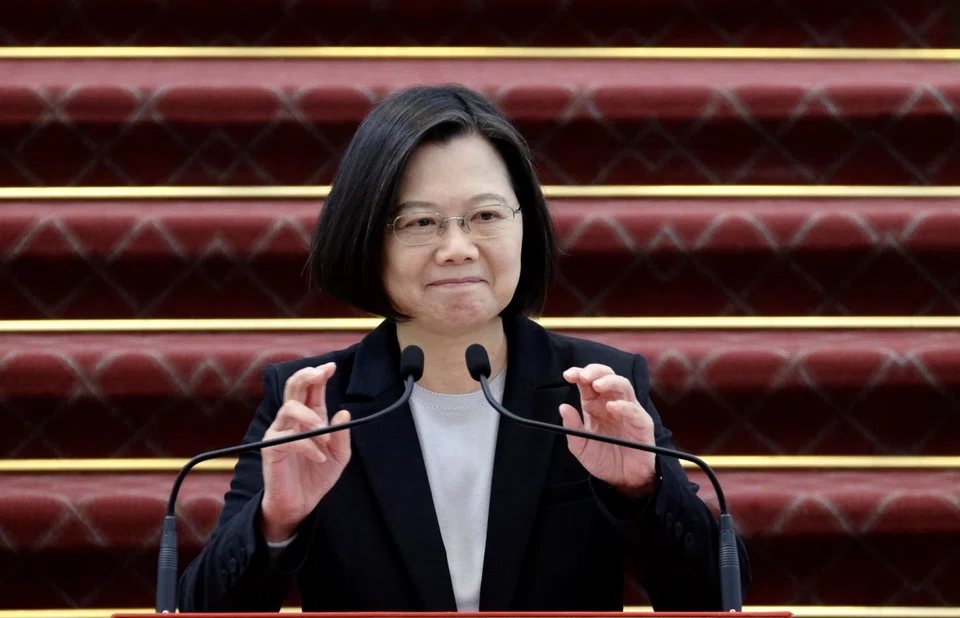What has Tsai Ing-wen's team done right in Taiwan's fight against Covid-19?
Taiwanese President Tsai Ing-wen has been winning praise for her team's handling of the Covid-19 outbreak. Premier Su Tseng-chang who calls himself "capable", is said to be leading a group of capable government officials; Minister of Health and Welfare Chen Shih-chung, has become the darling of the media and of the people of Taiwan. What have they done to garner such support?

Apart from testing healthcare systems and public health policies, the Covid-19 epidemic also puts enormous pressure on political figures. Judging by international public opinion on Taiwan's containment efforts thus far, Taiwan President Tsai Ing-wen and her ruling Democratic Progressive Party (DPP) have proven their reliability in tackling the epidemic - not only is the outbreak believed to be less severe and better brought under control compared to surrounding regions, the morale of the ruling party is also going strong.
According to public opinion gathered by various media organisations, the Taiwanese are full of praise for the DPP's handling of the outbreak, displaying a satisfaction level of at least 80%. They also awarded high personal ratings for Tsai and Taiwan Premier Su Tseng-chang (who calls himself "capable"), recording satisfaction levels of 70%. These positive polls add to Tsai's recent triumph of being re-elected with a record number of votes.
Fielding Minister of Health and Welfare Chen Shih-chung
The Tsai government has the capable frontline medical workers and public health experts to thank for their recent good press. Minister of Health and Welfare Chen Shih-chung, in charge of Covid-19 epidemic control and prevention, has a huge role to play as well.
On 23 January, Chen took over as commander of the Central Epidemic Command Centre after Taiwan raised its epidemic response level from level 3 to level 2. Since then, Chen became the political figure with the most airtime in Taiwan - the Taiwanese could watch Chen reporting about the latest epidemic developments almost every day through the Internet or live television broadcast. Whether it was good news or bad news, Chen kept a poker face at all press conferences, and maintained a calm tone whenever he spoke. This perhaps made the Taiwanese feel more at ease.
Following Chen's lead may appear to be placing Chen on a pedestal, but in actual fact, it demonstrates the Taiwanese's desire for a political figure who is serious, sincere and transparent, after being manipulated by unscrupulous politicians for a long time.
However, Chen occasionally got emotional as well. For example, he broke down in tears last month while announcing that there was a confirmed case in the first charter flight from Wuhan, as he was grateful that the team had managed to give the patient timely treatment. "Chen Shih-chung cried" made the headlines instantly, and when the people found out that Chen's mother had just passed away, netizens flooded the Ministry of Health and Welfare's Facebook page with heartwarming messages, asking "Minister Chen to have a good rest".
Yet, Chen did not stop. Apart from visiting and inspecting medical institutions, Chen also personally went to the front line, such as the Superstar Aquarius, to supervise medical screening work.

Chen's efforts have helped to cast him as a heroic figure in the eyes of the Taiwanese. His reputation and popularity could be said to have surpassed other political figures. So much so that Taipei mayor Ko Wen-je, once a popular figure in the political arena himself, reportedly became jealous, sarcastically remarking that "everyone has to follow Chen's lead now" (顺时中, shun shi zhong (Shih-chung), based on the homophone "going clockwise" (顺时钟, shun shi zhong)).
Following Chen's lead may appear to be placing Chen on a pedestal, but in actual fact, it demonstrates the Taiwanese's desire for a political figure who is serious, sincere and transparent, after being manipulated by unscrupulous politicians for a long time. More importantly, this phenomenon is also a reflection of Tsai's major change from her first term going on to her second term in office.
"Control freak" no more
You Ying-lung, chairman of the Taiwan Public Opinion Foundation, expressed in a radio interview recently that Tsai is no longer the same as before. He said that in the past, Tsai had always been "both president and premier" and was guilty of micromanagement. Officials working under her thus found it very difficult to carry out their duties properly, resulting in poor execution of policies, and brought about public furore. After Su took over as premier (in January 2019), however, Tsai has rarely been involved in such political tussles. This has helped her image to gradually improve.
Former DPP legislator Lin Cho-shui also observed that Tsai was once known as a "control freak", but after Su took office, she has "finally let go". Lin said, "The premier is leading a group of capable government officials, and thus many things, including epidemic control and prevention, have become greatly effective." He added that although Tsai's capabilities were "limited", she at least did "one thing [letting go] well".
With 20 May quickly approaching, Tsai's future plans for leadership delegation and governance style are worthy of observation as she assumes her second term in office.

While Su's aggressive nature could be one of the reasons why Tsai was forced to compromise and let go, Tsai's willingness to change cannot be discounted. Taking the example of Chen Shih-chung, Tsai did indeed display an increased sensitivity in observing subtle changes in public opinion and trends, and wisdom in delegation of leadership roles. As Tsai is aware of the Taiwanese's deep trust in Chen, even after the Central Epidemic Command Centre raised its epidemic response level from level 2 to level 1, she insisted on allowing Chen to continue as the centre's commander, and did not put Su in charge in accordance with external speculation, or choose Vice President-elect William Lai, who is a doctor by profession, to take over. From a different angle, Tsai could also be working behind the scenes to bolster Chen's high level of support.
With 20 May quickly approaching, Tsai's future plans for leadership delegation and governance style are worthy of observation as she assumes her second term in office. While Chen's performance marks a beautiful start for Tsai, newly elected president of the Legislative Yuan, Yu Shyi-kun's recent unfair appointment of Hung Tzu-yung as the Legislative Yuan's consultant, and Yu's arrogance as an official, have deducted some points from the DPP's effective management of Covid-19 outbreak containment efforts. If Tsai hopes to continue riding on her landslide re-election and to entrench the DPP's long-term rule while the Kuomintang remains fatigued after its loss in the elections, she has to be extra careful in this area, lest she loses focus and misses the mark.



![[Photos] Fact versus fiction: The portrayal of WWII anti-Japanese martyrs in Taiwan](https://cassette.sphdigital.com.sg/image/thinkchina/3494f8bd481870f7c65b881fd21a3fd733f573f23232376e39c532a2c7593cbc)

